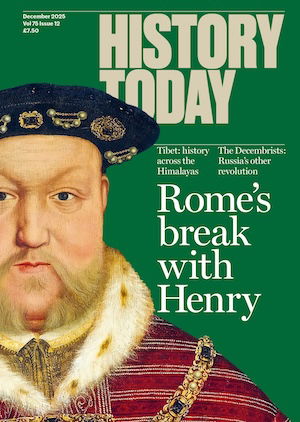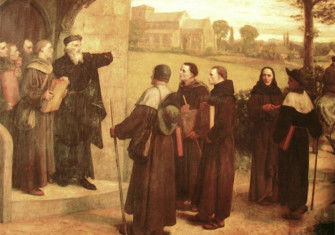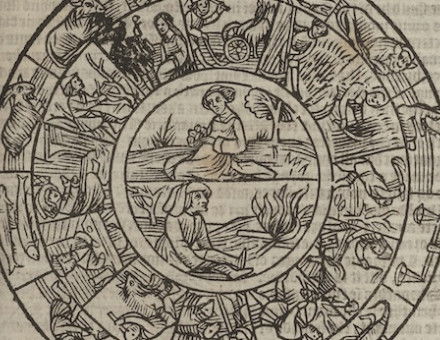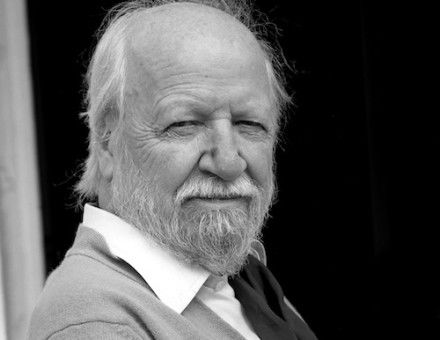John Wycliffe condemned as a heretic
The theologian was denounced by the church on May 4th, 1415.
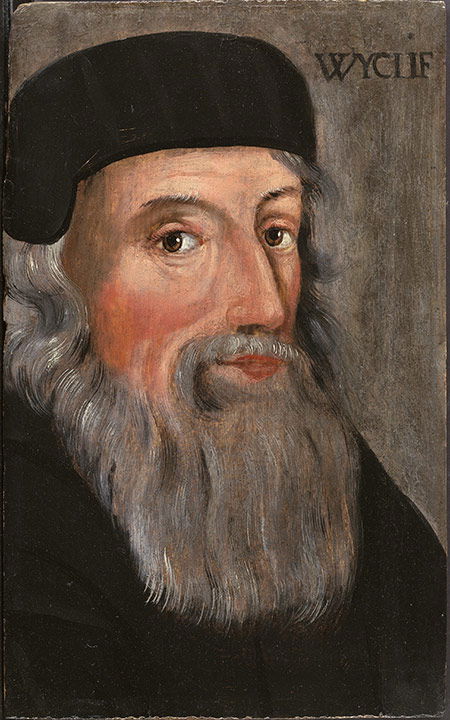
The Church Council of Constance assembled in 1414 under pressure from the Holy Roman Emperor to resolve the confusing and embarrassing situation in which the Church found itself with three popes all at once. There had been two rival popes since 1378 and three since 1409. The Council claimed direct authority from Christ and consequently superior power over any pope and succeeded in resolving the papal situation by the time it finished its labours in 1418. Meanwhile, in 1415, the Council had considered, and condemned as heretical, the teachings of the Prague priest Jan Hus and he was burned at the stake in Constance. It also condemned an Englishman whose writings had influenced Hus.
Fortunately for the Englishman, he was dead. Thought to have been born in the mid-1320s, John Wycliffe or Wyclif (there are several other spellings) was a Yorkshireman, who studied at Oxford University, became a fellow of Merton College and went on to win a brilliant reputation as an expert on theology. Ordained priest in 1351, he was vicar of Fylingham, a Lincolnshire village, from the 1360s, but spent most of his time at Oxford. In 1374 he was made rector of Lutterworth in Leicestershire.
By that time Wycliffe had developed startlingly unorthodox opinions, which were condemned by Pope Gregory VII in 1377. He had come to regard the scriptures as the only reliable guide to the truth about God and maintained that all Christians should rely on the Bible rather than the unreliable and frequently self-serving teachings of popes and clerics. He said that there was no scriptural justification for the papacy’s existence and attacked the riches and power that popes and the Church as a whole had acquired. He disapproved of clerical celibacy, pilgrimages, the selling of indulgences and praying to saints. He thought the monasteries were corrupt and the immorality with which many clerics often behaved invalidated the sacraments they conducted. If clerics were accused of crime, they should be tried in the ordinary lay courts, not in their special ecclesiastical tribunals.
Wycliffe advanced his revolutionary opinions in numerous tracts. He thought that England should be ruled by its monarchs and the lay administration with no interference from the papacy and the Church. In his On Civil Dominion of 1376 he said:
England belongs to no pope. The pope is but a man, subject to sin, but Christ is the Lord of Lords and this kingdom is to be held directly and solely of Christ alone.
His opinions gained him powerful supporters, including John of Gaunt, who intervened to protect him from infuriated archbishops and bishops. He lost some support in 1381 when he denied the doctrine of transubstantiation, that in the Eucharist the bread and wine are transformed into the body and blood of Christ. Parliament condemned his teachings the following year, but he was allowed to retire to his parsonage at Lutterworth.
The corollary of Wycliffe’s belief that all Christians should learn the faith for themselves was that Scripture needed to be translated into their own languages. His most important achievement was the first complete English translation of the Bible, issued from 1382. Whether he translated any of the Latin Vulgate himself is uncertain and disputed, but there is no doubt of its impact at all social levels. The remarkable number of copies which have survived show how widely esteemed it was.
At Christmas in 1384 Wycliffe was at Mass in the church at Lutterworth on December 28th when he had a stroke and collapsed. He had suffered a previous stroke a year or two before and the second one proved fatal. He never spoke another word and died on the 31st. His body was buried in Lutterworth churchward, where it remained until 1428 when, following the orders of the Council of Constance, it was dug up and burned. The ashes were scattered in the nearby River Swift.
Wycliffe’s followers were known scornfully as Lollards, thought to be derived from a Dutch word meaning ‘mumbler’, though it acquired the implication of ‘lolling about’ and ‘idling’. There were groups of them at Oxford and elsewhere and some blamed the Peasants’ Revolt of 1381, led by Wat Tyler and others, partly on their influence. Some Lollards were burned as heretics and a Lollard rising in 1414, led by Sir John Oldcastle, was suppressed. All the same their influence persisted and Lollard ideas blended with the rising tide of Protestantism in the 16th century. Indeed, Wycliffe has been hailed as the Morning Star of the Protestant Reformation.

